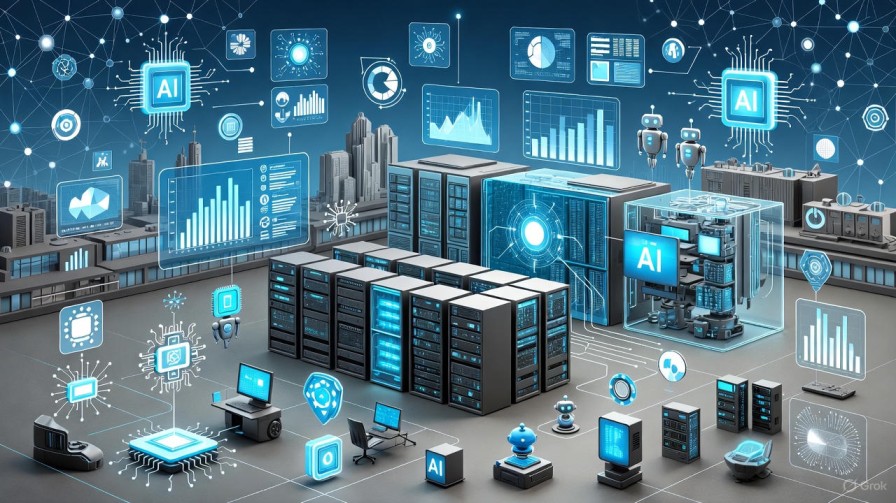AI to Build and Run South Korea’s Next Major Data Center

A large-scale data center project planned in South Korea could soon make history — not for its size, but for its creator. The facility is expected to be designed, constructed, and operated largely by artificial intelligence systems, signaling a revolutionary shift in how data infrastructure is built and maintained.
The initiative, which aligns with South Korea’s national digital transformation goals, underscores how rapidly AI is expanding from software applications to physical infrastructure management.
Background: From Human Supervision to Autonomous Systems
Traditionally, data centers — the backbone of cloud computing and AI services — have been engineered and managed by teams of human specialists overseeing energy efficiency, security, and cooling. However, as demand for computing power skyrockets due to AI training and big data analytics, managing operations manually is becoming increasingly complex.
This growing challenge has prompted South Korea’s tech sector to explore AI-driven design and automation tools capable of self-optimizing architecture, energy usage, and maintenance schedules.
Key Developments: How the AI-Led Center Will Work
According to early project details, the proposed AI data center will leverage generative AI models and predictive algorithms to optimize every phase — from layout design and energy planning to workload balancing and equipment monitoring.
AI tools will simulate thousands of operational scenarios to determine the most efficient infrastructure design. Once built, AI systems will continuously analyze sensor data to predict hardware failures, adjust cooling levels dynamically, and even schedule automated repairs using robotics.
In essence, the data center will function like a self-learning organism — constantly evolving to reduce waste, boost uptime, and cut operational costs.
Technical Perspective: AI as the “Architect” and “Operator”
At its core, this project uses reinforcement learning and digital twin modeling — where an AI creates a virtual replica of the facility to test operational strategies before deploying them in the real world.
Machine vision and robotic automation will handle physical tasks, while large language models could oversee decision-making and reporting processes, mimicking the role of human managers.
This integration represents one of the most advanced uses of AI in infrastructure automation to date, blending industrial engineering with autonomous systems.
Why It Matters: A Model for the Future
If successful, South Korea’s AI-built data center could set a precedent for global infrastructure innovation. It promises faster development cycles, improved sustainability, and potentially lower costs for tech companies seeking high-performance, energy-efficient data environments.
For the broader tech industry, it hints at a future where AI doesn’t just run on data centers — it runs them.
Challenges and Limitations
Despite its promise, the project faces significant hurdles. Building AI systems capable of safely managing complex physical infrastructure raises concerns over reliability, accountability, and cybersecurity.
Experts warn that full automation could make systems more vulnerable to sophisticated cyber threats, and human oversight will remain essential — at least for now.
Future Outlook: The Dawn of Self-Managing Infrastructure
As nations race to scale AI infrastructure, autonomous data centers could become the next frontier. South Korea’s project may inspire similar initiatives across Asia, Europe, and North America, especially as cloud providers seek greener, more adaptive technologies.
By 2030, experts predict that AI-assisted infrastructure could become standard — blending automation, sustainability, and intelligence into the foundation of digital economies.
Conclusion
South Korea’s vision of an AI-built and AI-operated data center marks a turning point in technology infrastructure. It represents not just automation, but a redefinition of how machines and algorithms can reshape the physical backbone of the digital world — faster, smarter, and more efficiently than ever before.